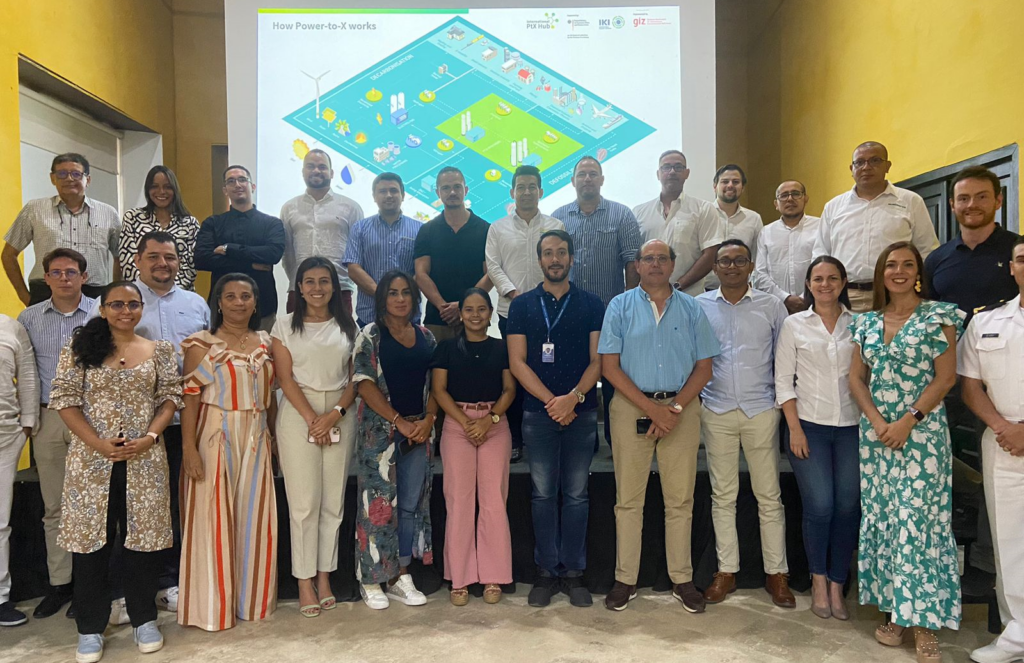In June, Colombia and Germany signed agreements to consolidate their bilateral relations on green hydrogen. They signed the “Alliance for the Climate and Just Energy Transition” to cooperate on four key sectors for climate action: the protection of forests and sustainable production systems without deforestation, raw materials and renewable energy policy, marine and terrestrial biodiversity and ecosystems, and sustainable urban development and a circular economy. In the same month, the Colombian Ministry of Mines and Energy signed a Memorandum of Understanding with the Fraunhofer-Gesellschaft to analyse the production of hydrogen, ammonia, methanol, and e-fertiliser in Colombia.
Supporting these efforts, the PtX Hub organised four trainings on Power-to-X with the Ministry of Mines and Energy during the past three months in Bogotá, Medellin, and Cartagena. Federal and local public and private representatives in key positions to accelerate the development of the Colombian PtX economy discussed the role of hydrogen and PtX hubs to advance towards the objectives set in the Colombian Hydrogen Roadmap and the German National Hydrogen Strategy.
The exhaustive, relevant and interesting PtX training has given us a complete vision. This learning has allowed us to understand the magnitude, importance, and relevance of this growing sector.
Ivan Martinez Ibarra, CEO of Egal
Creating this space to learn and collaborate for more than 100 participants, the PtX Hub facilitated debates on public policy actions for renewable energy and green hydrogen expansion as well as key economic, social, and environmental concerns to be considered.
My sincere thanks to the GIZ team. Your knowledge on hydrogen and PtX in general has been key for the development of renewable energy strategies in the company.
Luz Yamile Ordoñez, Hocol

Hydrogen hubs for a hydrogen valley in the Colombian Caribbean
As the Colombian Caribbean expects one of the lowest levelised cost of hydrogen (LCOH) in the world, participants from Cartagena and Barranquilla focused on the potentials of hydrogen hubs and a hydrogen valley in the area. For example, La Guajira expects levelised costs of hydrogen of 2,58 US$/kg from wind and 5,51 US$/kg from solar energy. Due to its geographical location, infrastructure, and human capacities, the region is strategically placed for exports to European markets.
Prof. Yefferson Lopez, University of Antioquia and Juan Miguel Mantilla, National University of Colombia held the four trainings. Previously, they participated in the PtX Hub’s Train-of-Trainers programme in Germany.
From the Chamber of Commerce of Cartagena and the Energy cluster we hope to continue generating spaces like these to continue promoting positive initiatives in the country.
José David Marquez, Chamber of Commerce of Cartagena
In the coming weeks, the hydrogen hub study, and an analysis of the potential for green ammonia in Colombia will be discussed with key stakeholders. Furthermore, Colombian public officials and representatives from public companies will visit Germany to meet with their counterparts as part of an exchange trip organised by the PtX Hub. Our team in Colombia is also developing recommendations on hydrogen certification for the national hydrogen roadmap, which is currently being developed.
